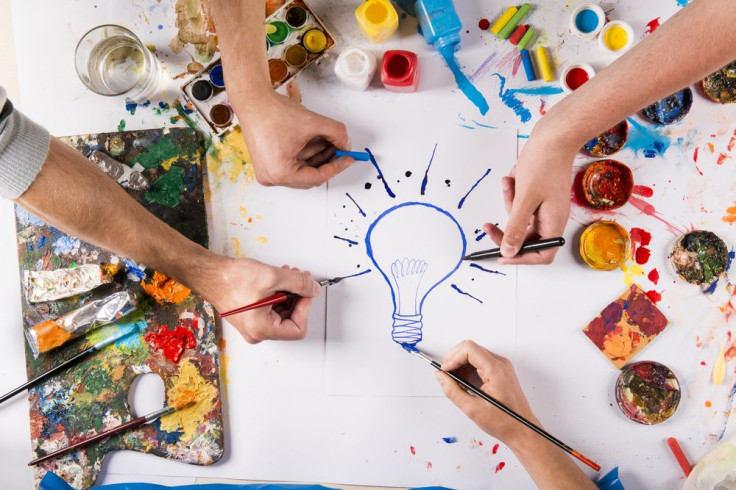Creativity And Optimal Brain Function Have Been Linked: Faster Processing Means Diverse Connections

Creativity may just be the key to a better brain. Spending hours practicing the violin or figuring out where to place your rook in another timed game of chess may not be as effective as simply exploring your creative outlet. Researchers at Maharishi University of Management in Iowa and the University West in Sweden have found creativity lies at the root of innovation, entrepreneurship, competitiveness, and faster brain processing. The findings, which were published in the Creativity Research Journal, highlight the brain’s ability to integrate and process problems and alternative solutions faster if its creative side is more highly developed.
"It's a simple fact that some people stand out, and we're trying to tease out why," said Dr. Frederick Travis, one of the study’s lead authors and director of the Center for Brain, Consciousness, and Cognition at Maharishi University. "We hypothesized that something must be different about the way their brains work, and that's what we're finding."
Brain integration was defined by the researchers as mind-brain development and measured by tracking the frontal brain waves of 21 product development engineers in Sweden, with educations that ranged from no university education to PhDs to full professors.
They used an electroencephalography (EEG) to see how connected different regions of the brain were and how powerful their attention levels were, and preparation responses, which examine how efficiently a brain reacts to a stimulus. They were also asked questions that tested their comprehension, management, their interest level in learning, meaningfulness of life, and their personal moral compasses.
The engineers fell between the 70th to 90th percentile in terms of creativity. Those who exhibited more flexibility or originality in verbal or figural creativity tests had higher levels of brain development. Researchers used the canonical correlation analysis (CCA) to measure the relationship between the psychological, physiological, and creativity in the frontal brain.
"Our empirical findings highlight that creativity, in the form of flexibility and originality is connected to whole brain functioning and psychological development," said Dr. Yvonne Lagrosen, the study’s co-author from the University West in Sweden. "Since creativity is highly important for individual success, optimizing brain functioning should be a priority for every student."
This study leads to the importance of creativity. In school settings, creativity needs to be fostered in order to grow individually successful students. Researchers conclude that creativity should be considered a core value for employees who want to research success, along with honesty, being fair, good, and open-minded.
In general, higher moral reasoning has been identified as a measure for a highly developed frontal executive thinking and creative processing. But there is no perfect score for being the most open-minded or even the most creative person, which begs the question: Can practice really make perfect?
Does practice make perfect?
Experts say no.
"While there's a common notion that 10,000 hours of practice is necessary for high achievement, some people put in long hours and do not excel," Travis said. "This work and other work with my Norwegian collaborator, Dr. Harald Harung, and Dr. Yvonne Lagrosen suggest that brain integration may be the inner factor that leads to outer success."
The haunting 10,000-hour rule was made well-known throughout the readership of Outliers, a non-fiction statistically-fueled novel by Malcolm Gladwell. He reasons that it takes roughly 10,000 hours of intensive practice for someone to truly become great at something, whether it be chess, or as Gladwell cites: the Beatles or Bill Gates who received an abnormally large quantity of practice in musical performances in Hamburg clubs to computer programming in a Seattle high school.
Yesterday Gladwell cleared up confusion about his theory that has been widely interpreted as an ironclad rule, on a Reddit “Ask Me Anything” appearance. “The point is simply that natural ability requires a huge investment of time in order to be made manifest,” he wrote. “Unfortunately, sometimes complex ideas get oversimplified in translation.”
Practicing a particular skill may not be the key to perfection, but instead developing creativity to better integrate the brain and train it for quick thinking and analytical skills may be the answer. Can necessary creativity skill be fostered into high-quality intelligence? Education experiments and further research will have to confront that query.
"This then raises a question," Travis said. "Is it possible to increase one's level of brain integration, or is it simply a matter of genes (nature) or a supportive environment (nurture)?"
Source: Travis F, Lagrosen Y. Creativity and Brain-Functioning in Product Development Engineers: A Canonical Correlation Analysis, Creativity Research Journal. 2014.



























